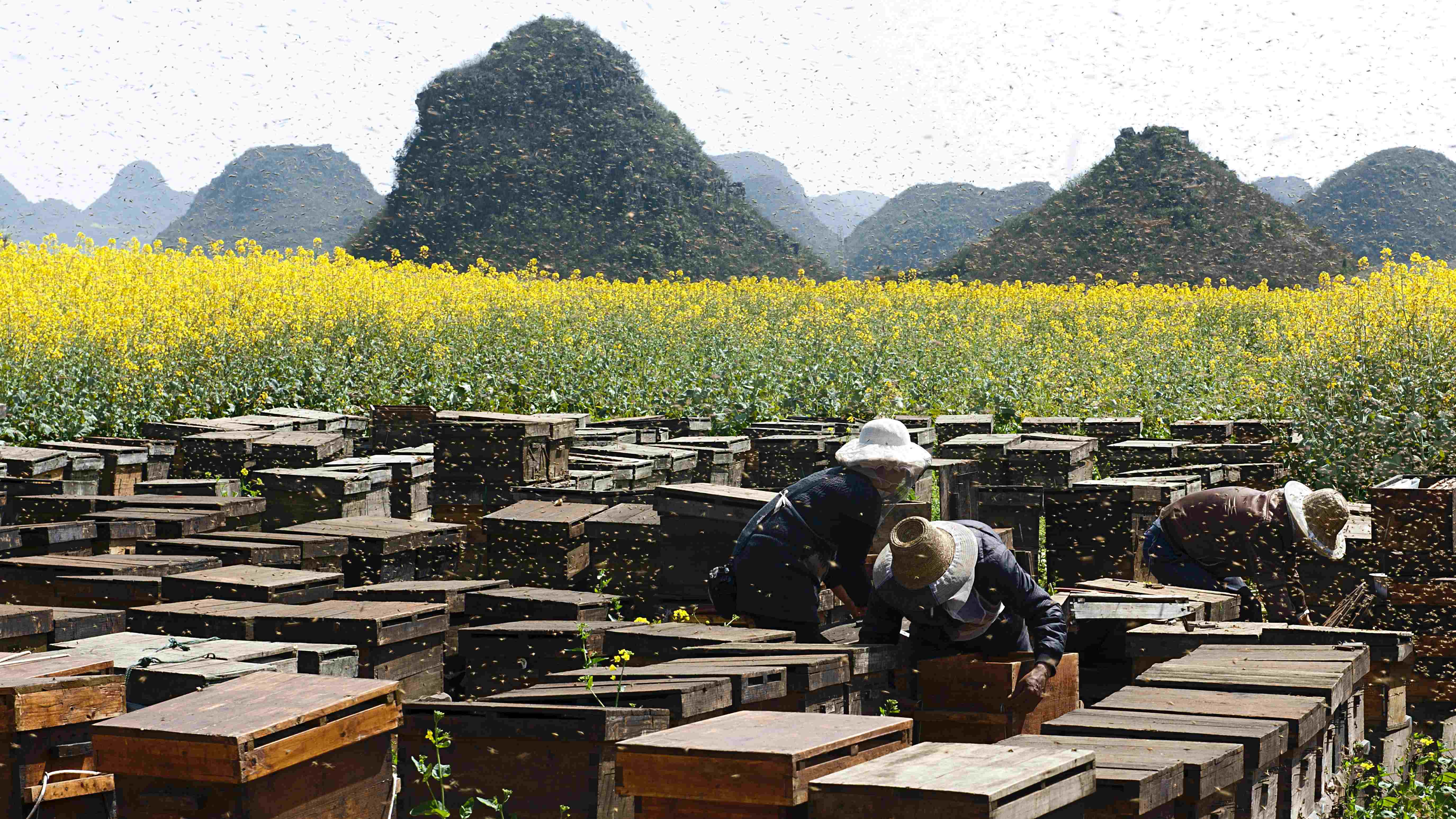04:07

Compared to 1.39 billion, 300,000 is not a big number. The 300,000 beekeepers in China have long been neglected by the public – but the COVID-19 outbreak has put them in the spotlight.
Due to travel restrictions amidst COVID-19, many beekeepers were stranded in southwest China's Yunnan Province and their bees died from pesticides and bee mites as a result. Liu Decheng, one of the stranded beekeepers, even chose to hang himself because of his losses, a tragedy that drew attention to this previously invisible community.
In China, most beekeepers raise Italian bees which require them to take hives to different places according to the flower season. In February and March, they might travel to southwest China's Sichuan Province for the nectar of rapeseed flowers. In April, they might migrate to northwest China's Shaanxi and Gansu provinces for blooming flowers of black locust trees.
Although these flower chasers have their own "nectar routes," most of them travel to Yunnan Province to spend the winter. The unexpected pandemic this year stopped them from finding food sources for their bees. How do they cope with the situation? What are their lives like?
(Cover image designed by CGTN's Feng Yuan.)
(If you want to contribute and have specific expertise, please contact us at nature@cgtn.com)